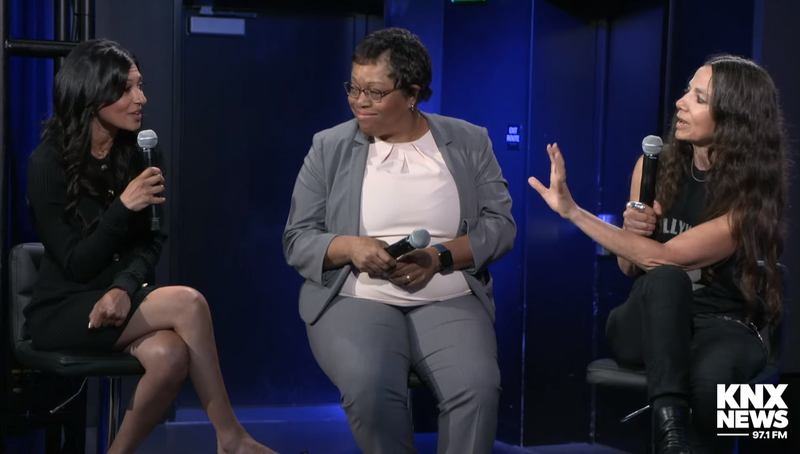
LOS ANGELES (KNX) - Kalinda Ukanwa, a professor at the University of Southern California, recently received a written assignment from one of her students that looked a little too much like the work of ChatGPT.
“I’ve played a lot with ChatGPT as part of my research,” Ukanwa said. “ChatGPT tends to be wordy, lengthy, it talks too much.”
She called the student in and asked some questions about the ideas in the paper, pushing the student to go deeper. They weren’t able to answer the questions. Eventually, the student admitted to using ChatGPT.
Ukanwa, who researches responsible AI and algorithmic fairness, says that situations like this aren’t going away — as long as AI exists, students will use it for schoolwork.
“Instead of bashing it and saying how do we stop it, I think we need to understand, how do we adapt?” Ukanwa asked. “How do we use it so that we’re still teaching people how to do what they’re going to do, but with the knowledge that they’re going to use ChatGPT?”
Panelists at the KNX News Town Hall “Reality in an A.I. World” offered varying perspectives on what role, if any, AI should play in the education system.
Sabaa Quidwai, founder of the education-technology consulting firm Designing Schools, called AI a “gift to education.”
“We are so stagnant. We have been in a state where we have not been pushed to change,” she said. “What does cheating even mean anymore? What is the real value of what we’re trying to get at when we think about writing?”
Quidwai said that rather than asking ChatGPT to write an entire paper for them, students often use it as an interactive tool to help them brainstorm and develop ideas.
“They’re having this sort of back-and-forth dialogue that most educators don’t even have the time to have with their students,” she said.
Justine Bateman, an actress, producer, director, screenwriter, and mother to two teenagers, disputed this. She said she’s seen firsthand that some kids do use ChatGPT as a shortcut to avoid learning how to write papers — which devalues the entire concept of education.
“Writing those papers, doing all that research yourself … there’s something about that,” she said. “There’s too much emphasis on ‘get your degree so you can make this money.’ There’s not enough emphasis, I don’t think, on actually learning the stuff.”
But can AI augment deeper human learning instead of replacing it? Ramsay Brown, CEO of the AI Responsibility Lab and Mission Control, compared AI to a tool like a calculator.
“If you went to calculus class, there’s the ‘you can use a calculator’ test and the ‘no calculator’ test. They test different cognitive skills,” he said. “ChatGPT is not a database for looking up facts, it’s something like a reasoning engine. Can you encourage students to learn using a reasoning engine as part of the skills they need to be an adult in this world?”
The question for educators is how to reshape curriculums to ensure students are using AI as a tool rather than a shortcut.
Without any reliable way to detect AI writing, Ukanwa says USC is actively looking at ways to reframe essay questions in ways that are beyond ChatGPT’s capabilities to answer — for example, asking students to incorporate two disparate ideas into their response.
“There are a lot of things ChatGPT cannot do, and it really allows you to really test the questions on the creativity and innovation of the student,” she said.
Listen to the full “Reality in an A.I. World” Town Hall above, or watch the video on YouTube.
Follow KNX News 97.1 FM
Twitter | Facebook | Instagram | TikTok


